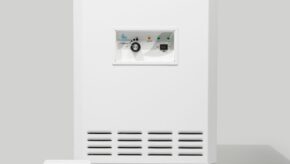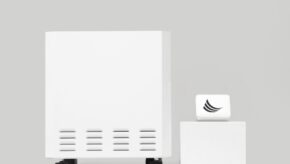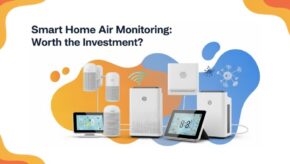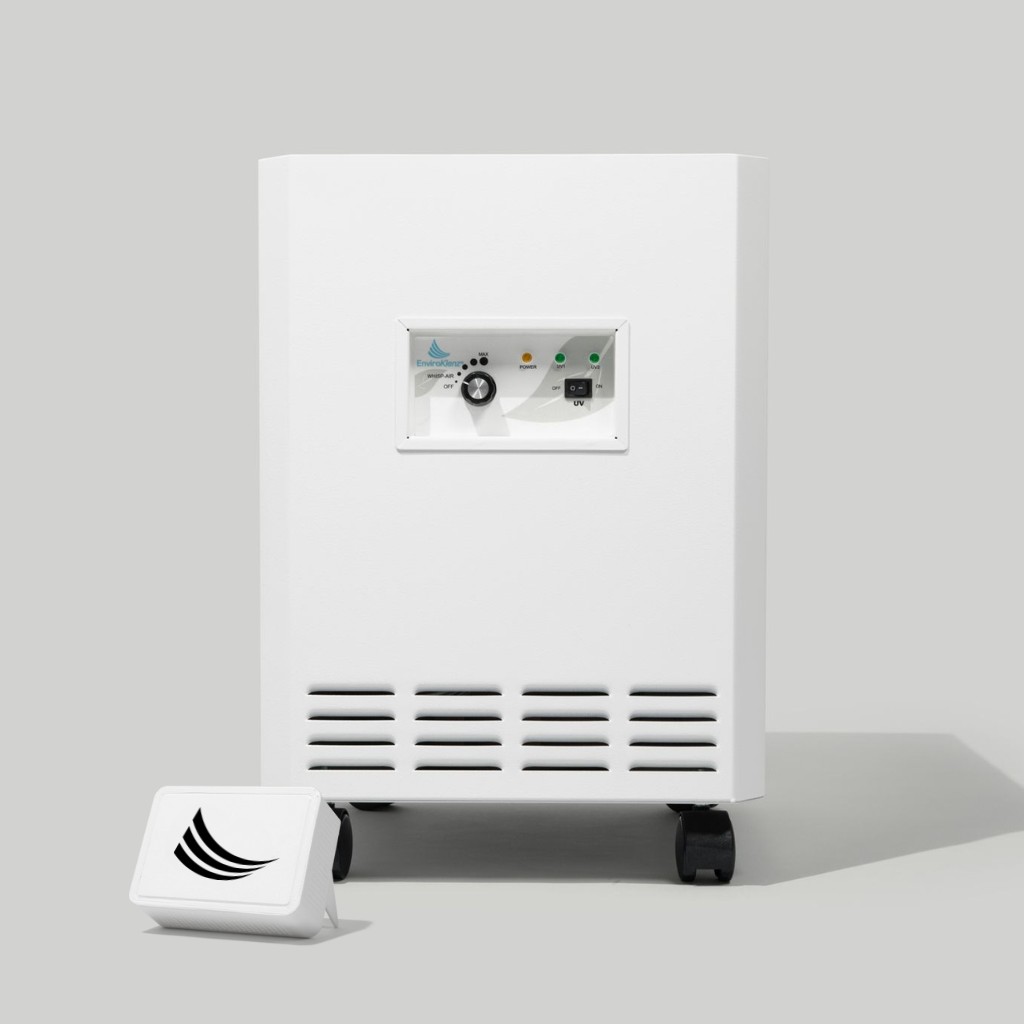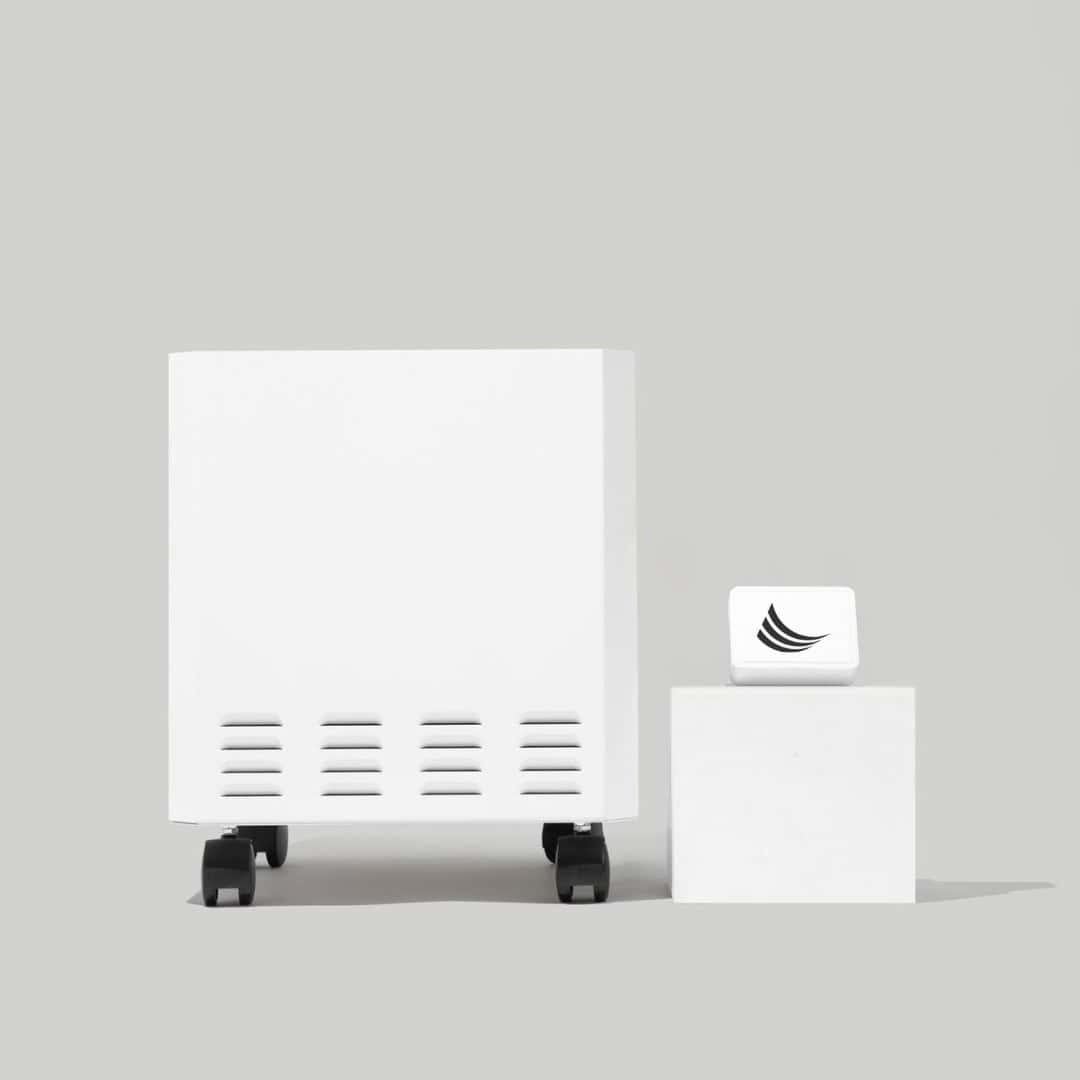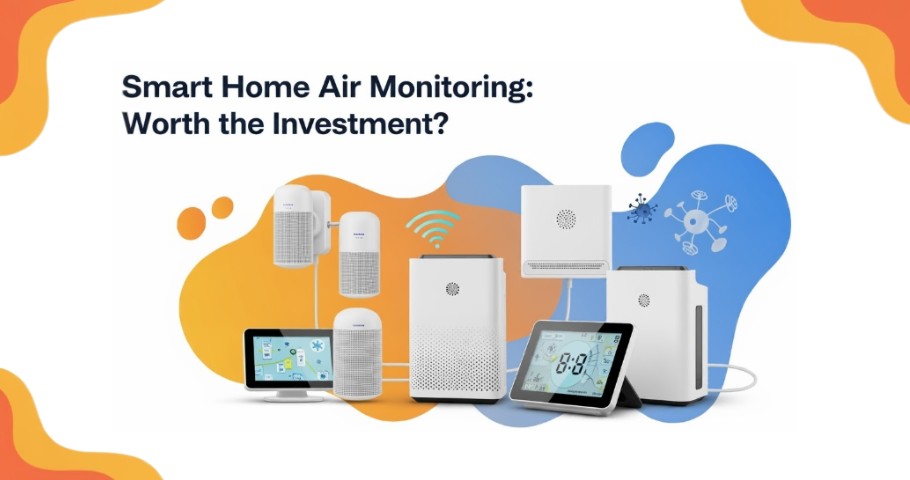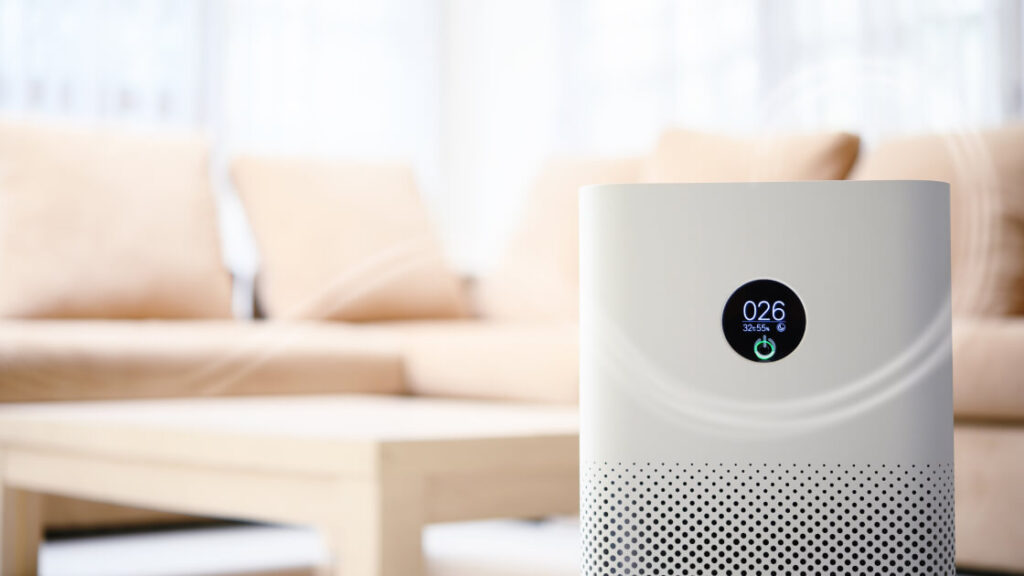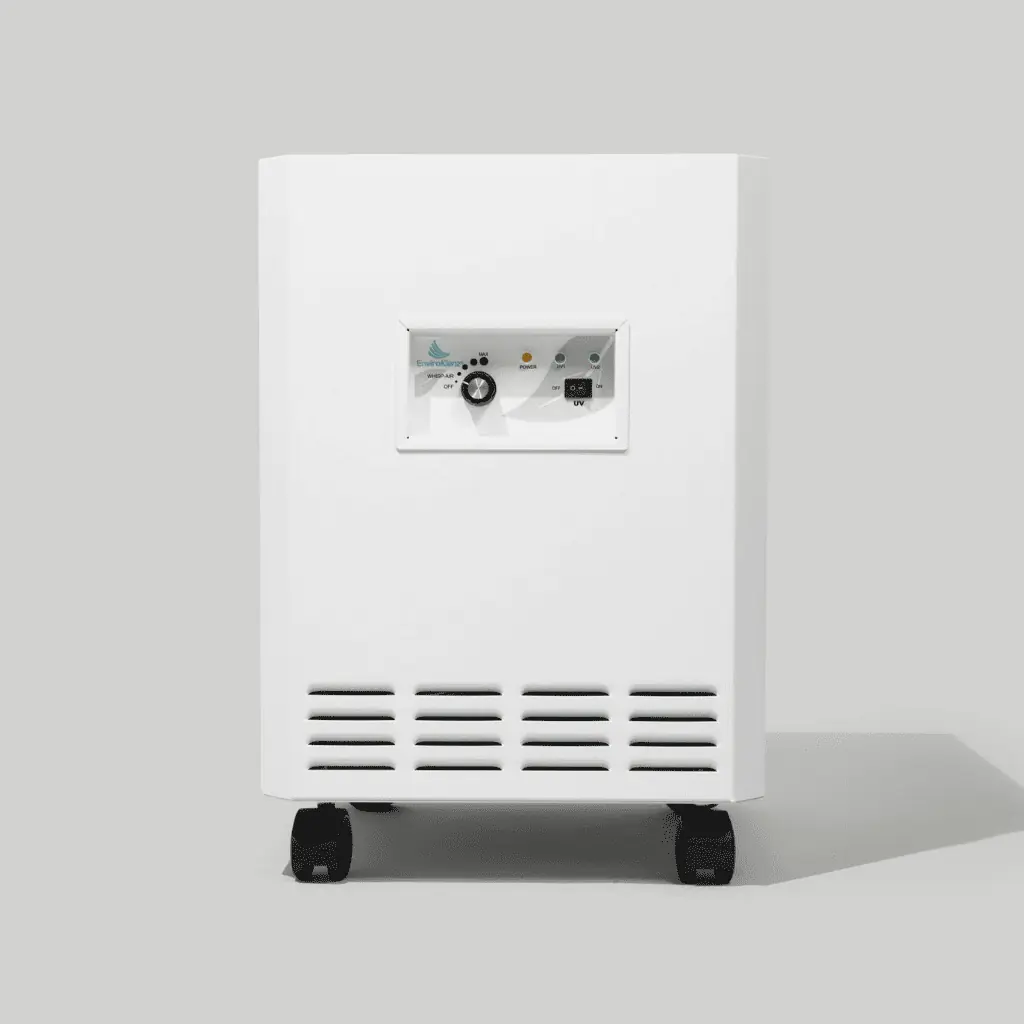Molecules continually travel throughout the air space and are intertwined into our personal indoor spaces without much knowledge of their presence. The atmosphere is composed of molecules of different gases including nitrogen, oxygen, and other gases that can be found in the air that we breathe. Think about this image but add electrically charging air molecules into that image. These electrically charged molecules are designed to float around in the air and attach to contaminants, particulates, and other miscellaneous debris that can be found in the air that is considered a pollutant.
These negatively charged ions will bond together with the positively charged particles that are within the air. However, the emission of these negatively charged ions can also create hazards in the indoor environment that can result in undesirable indoor air quality conditions and even in some cases health effects that can wreak havoc on an individual’s health overtime.
This process of releasing negatively charged ions into the air of an environment is a process that is called ionization, and it has been adapted into air filters and air purifiers for use within a home.
In this article we are going to discuss the dangers of using an ionic air purifier and dive deeper into the pros and cons of using ionization in your personal indoor environment.
What Does an Air Ionizer Do
It is likely that you are fairly familiar with the new emerging trend of air purifiers for use in indoor environments to improve the indoor air quality in these spaces. There are a number of different air purifiers and air purifier technologies that are currently available to consumers to select from when they decide to purchase a purifier for their home.
The technologies that are used in these air devices are extraordinarily important and is an aspect of consumer purchasing that should be analyzed to maximize effectiveness of the device in your own personal indoor environment. There are a few highly desirable and well-known air purifier technologies that many people are familiar with including that of air ionizers or ionization.
Is ionic air purifiers bad for you? Air Ionizers discharge electrically charging air molecules into the air space through the use of an air purifier or air filter in an effort to remove contaminants from the air including particulates, microbes, and odors from the air. Although this air purifier is designed to help in the removal of pollutants from the air in an effort to improve indoor air quality, it has the potential to adversely impact the air quality through the production of ozone into the air – this can lead to major health issues upon exposure.

How Does an Air Ionizer Work
An air ionizer undergoes a specifically designed process that will release molecular particles into a room known as ions. These ions will float throughout the indoor air space throughout the environment in an attempt to come into contact with pollutants traveling in the air – once a connection occurs between the pollutant and the ion it will create a negative charge. The negative charge will work to bind the pollutants to the ion and will pull the cluster of particulate matter down onto the surfaces in the environment. This will require another step to removing particulates, rather than having it pulled onto a filter that can be easily removed and replaced with little work to consumers.
The basis of the ionization technology is reliance on the chemical properties of ions and their interaction with pollutants when attachment is created in the airspace of an environment. This technology has been used for decades and is among one of the first used technologies in air purifiers. However, these past few decades have not come with no issues as the technology has gained harsh criticism in the past.
Ionizer Air Purifier Pros Cons
Ionizer air purifiers are complex devices that use a technology that has many benefits and flaws that need to be outweighed before you purchase the air device. Due to the process that is undergone by the ionizer air purifier, there are a multitude of hazards that can be released and/or present in your air from the emitted ions in the air.
Below we are going to go through the pros and cons of an ionic air purifier for your personal indoor environment.
The ionic technology has been shown to purify the air of different pollutants and substances including bacteria, dust, cigarette smoke, mold, soot, pollen, and other household odors in the airspace. The removal of these allergens has been shown to improve the impact of allergy symptoms in those who suffer from both hay fever and occasional seasonal allergies. Also, there is a correlation between ionizers and asthma, as asthma sufferers have seen a noticeable improvement in their symptoms and the quality of the air that they are breathing in their home from ionic air purifiers.
In addition to the benefits listed above, ionizers will also reduce static electricity in your home, this is due to the emission of the negative ions into the air that can reduce the static electricity in the environment.
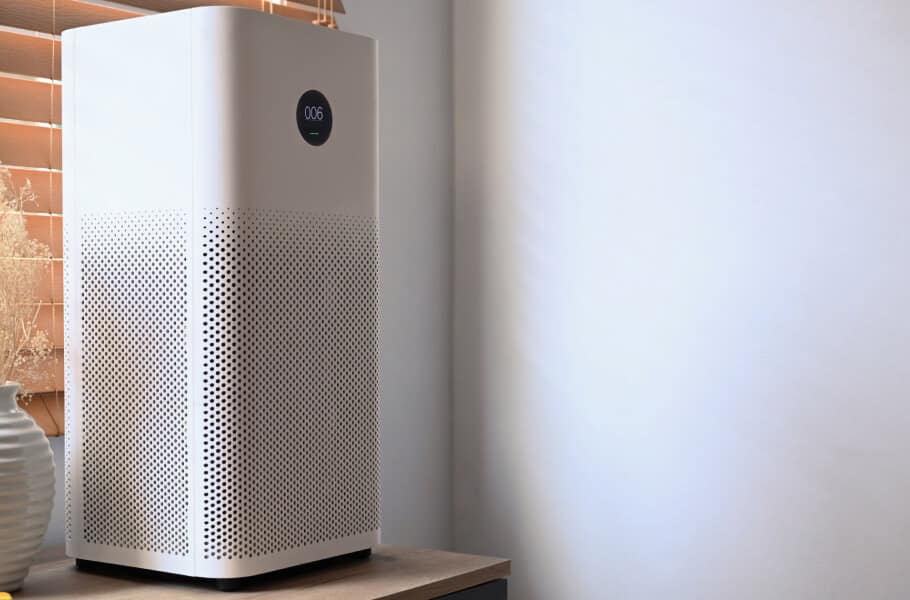
Air Purifier with Ionizer Side Effects
The long talked about risk of ionizer air purifier has been the argued debate on its production of ozone into the air through the ionization process. Ozone is a byproduct that can be formed from an ionic air purifier into the air by releasing O3 molecules into the air to attach to pollutants to neutralize them from the air. Although this emission is effective at reducing pollutants in the air, it will also have a dramatic impact on human health upon exposure in the environment. Humans are designed to breathe in O2 molecules in the air, and when O3 molecules are in the air and enter into the human body it will produce symptoms that can be significantly altering to an individual’s health.
Negative Ions Health Risks
When you are using ionizing air purifiers within a confined indoor environment, the potential health risks can vary depending on whether or not the ionizer produced ozone as a byproduct into the air. Ionizers release negatively charged ions into the air, but these types of ions are already naturally occurring in the environment. These naturally occurring negatively charged ions are formed when air is exposed to energy sources such as sunshine, lightning, and even waterfalls. Therefore, the negatively charged ions are not a tremendous risk in the environment, not like the production of ozone from ionizers into the air.
The emission of ozone as a byproduct from ionic air purifiers is where health risks are really created and heightened. The health risks that someone may experience from exposure to ozone byproducts will include the following symptoms:
- Decreased lung function
- Severe asthma symptoms
- Coughing
- Chest pain
- Throat irritation
- Shortness of breath
- And Higher sensitivity to respiratory infection
Ion Technologies Air Purifier
Air purifier technologies are plentiful in the marketplace today, and there are a number of popular technologies that many are gravitating towards in recent years. From ion technology, carbon technology, and ozone technology, these are among the top choices for those looking to purchase an air purifier. Each technology has different pros and cons that will contribute to indoor air quality – and this will play a role in how effective the air purifier is in your indoor environment.
In comparison to other technologies, ionic air purifiers are great for removal of allergens in the air. However, when it comes to odor removal and chemical removal in the airspace, the ionic technology falls short in complete removal in the personal indoor environment.
Safe Air Purifiers for the Home
When it comes time to selecting the best air purifier technology for your indoor environment that is both safe and effective, you will need to do some investigative work to identify the benefits and flaws of these different technologies. As we discussed above, ionizers are fairly effective air purifiers, but they do contain some risk as they can produce an ozone machine dangers byproduct into the air that is hazardous to human health. Similarly, ozone air purifiers or machines also contain that same hazard to human health in larger quantities and is therefore not the best option for a home.
Instead of opting for an air purifier that may contain certain risks to both human health and indoor air quality, select an air purifier that harbors no risks like the EnviroKlenz Air Purifier. The EnviroKlenz patented technology was designed to destroy some of the most harmful chemical warfare agents without the use of harsh chemicals or fragrances. The technology works to attack the VOCs and noxious odors and break them down on a compound level without releasing anything back into the environment (byproducts or other contaminants). The EnviroKlenz Air Purifier uses a two-stage filtration process, noxious odor and chemical elimination, and particulate removal through the use of a hospital-grade HEPA filter that is able to filter particulate matter larger than 0.3 microns in size at a 99.97% efficiency.
EnviroKlenz® Medical Disclaimer:
“Any information that is provided on this website is not for the use by any commercial or personal entity without expressed written consent of the blog author. The material and statements illustrated within this blog are not intended to diagnose, treat, cure, or prevent any diseases or medical conditions. Nor does the author in any way guarantee or validate the validity, totality, or efficacy of any claims and will therefore not be held responsible for the content of any claims. Always consult your medical physician for any specific medical advice or recommendations.”
